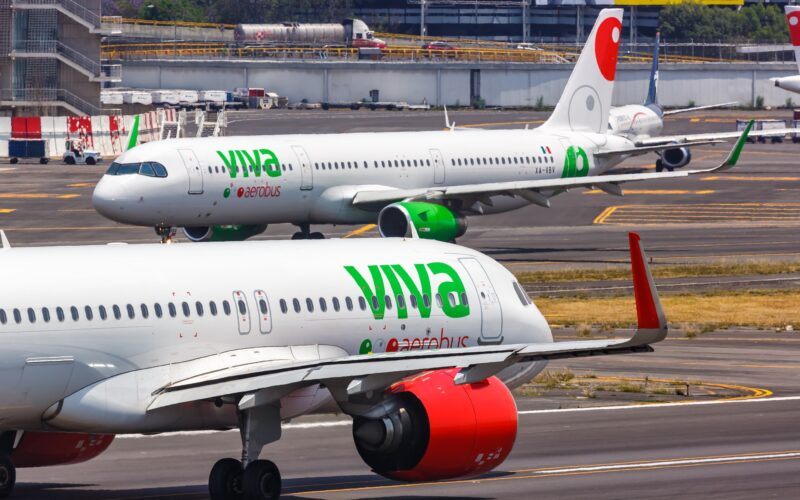Mexico-based low-cost carrier Viva Aerobus is reportedly eyeing an order for at least 100 Airbus aircraft.
According to a report by Reuters, the Mexican airline is actively discussing an order that would be in triple digits, citing people familiar with the matter. The report also cited a Viva Aerobus spokesperson, who told the publication that the carrier has not signed any new order with any aircraft manufacturer.
According to ch-aviation.com data, Viva Aerobus currently operates a fleet of 72 Airbus aircraft, including 22 A320ceo, nine A321ceo, 20 A320neo, and 21 A321neos.
Previously, the low-cost carrier operated a fleet of Boeing 737-800s, with up to 24 aircraft of the type.
Viva Aerobus has an order book for 25 Airbus A321neo aircraft, ch-aviation.com data showed.
In May 2023, the low-cost carrier welcomed 2 million passengers, 16.6% more than in May 2022 with 1.7 million travelers. However, the average load factor had dropped by 2.6%, going from 86.6% to 89.3% compared Year-on-Year (YoY).
Year-to-date (YTD) passenger numbers were 9.2 million by the end of May 2023, 20.6% higher compared to the corresponding period a year ago.
On the airline’s May 2023 passenger results, Juan Carlos Zuazua, Chief Executive Officer (CEO) of Viva Aerobus, commented: “As we approach the summer season, the forward booking trends indicate continued strength in demand and a favorable yield environment. In spite of the strong demand, we are committed to maintaining disciplined capacity management.”
The low-cost carrier finished Q1 2023 with a net operating loss of $21 million, a slight bump compared to Q1 2022’s operating loss of $23 million. This loss came despite revenues growing by 34% YoY, going from $259 million in Q1 2022 to $347 million in Q1 2023.
“Although the demand environment remains robust, the industry continues to face its share of challenges, mainly related to the supply chain, with delays in the delivery of aircraft, engines, and spare parts, coupled with jet fuel prices and inflation levels above historical averages,” Zuazua said at the time.

